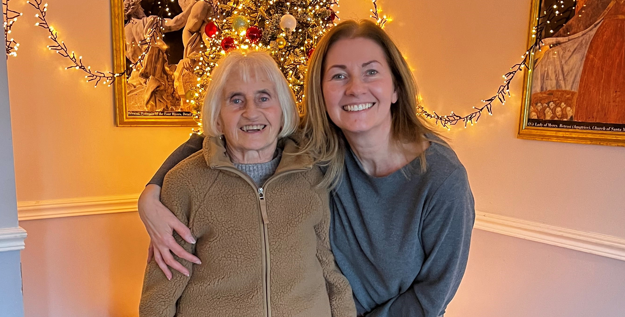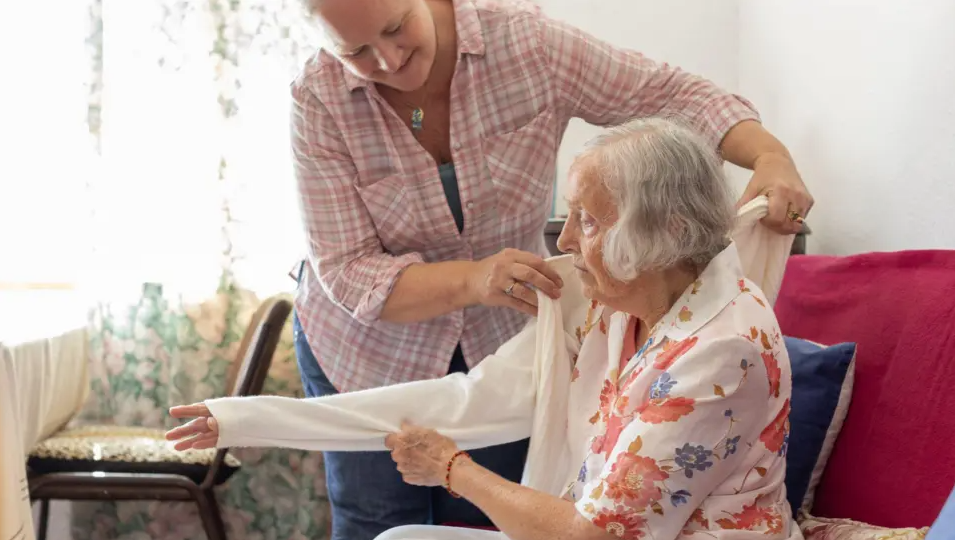Call for urgent change for 'isolated' unpaid carers

Jo (right) lives in Cambridgeshire and cares for her mum, who has Alzheimer's
- Published
Urgent change is needed to prioritise "unsupported, isolated and overlooked" unpaid carers as they struggle with growing challenges in their lives, according to a charity report.
Caring Together, based in St Ives, Cambridgeshire, has gathered first-hand accounts from people it supports across the county and Norfolk.
It revealed widespread difficulty in seeing a GP, money worries, and carers' wellbeing sacrificed as they look after loved ones with disabilities or long-term conditions.
"Thousands of unpaid carers across our region are doing extraordinary things, yet they feel neglected, taken for granted and ignored by government and decision-makers," said chief executive officer Miriam Martin.
"Better investment in carers' welfare is not only a moral imperative – but a financially sound strategy, saving billions for the NHS and adult social care systems."
The Carers Speak Out report has been released to mark Carers Week, which begins on Monday.

Carers sacrificed their own wellbeing but were being "taken for granted", the charity said
Based on contributions to its online platform, Caring Together found escalating financial pressures, driven by changes to benefits such as the winter fuel payment, rising energy costs, and the overall cost of living.
Many carers had been forced to reduce working hours or give up work entirely, at the expense of their financial stability and personal wellbeing.
'Self-care is a priority'
People also shared the emotional and physical toll of caring, with many suffering emotional distress as they watch a family member become increasingly unwell, and struggle to get them the help they need.
One carer wrote of her mum who had dementia: "It's a struggle keeping a confused lady safe and calm.
"It's heartbreaking."
Another carer, Jo, lives in Cambridgeshire and has previously shared her experience of looking after her mother, who has Alzheimer's.
"It's very difficult when you start caring because you want to put their needs above yours but you have to realise that if you don't prioritise your mental health and wellbeing you will not be able to do the job of caring," she said.
"It has taken me three and a half years to realise my self-care is a priority.
"It's more tiring than you think it will ever be and you can't do it on your own, you need other people to help and the forums and support groups out there like Caring Together can help a lot."
The charity is calling on GP surgeries to recognise and prioritise unpaid carers and the people they care for, and for MPs to advocate for thousands of their constituents in the same position.
It is also urging employers to become carer-friendly, with the support of the charity, which would enable more people to stay in work.
The Department for Health and Social Care has been approached for comment.
Get in touch
Do you have a story suggestion for Peterborough?
Follow Peterborough news on BBC Sounds, Facebook, external, Instagram, external and X, external.